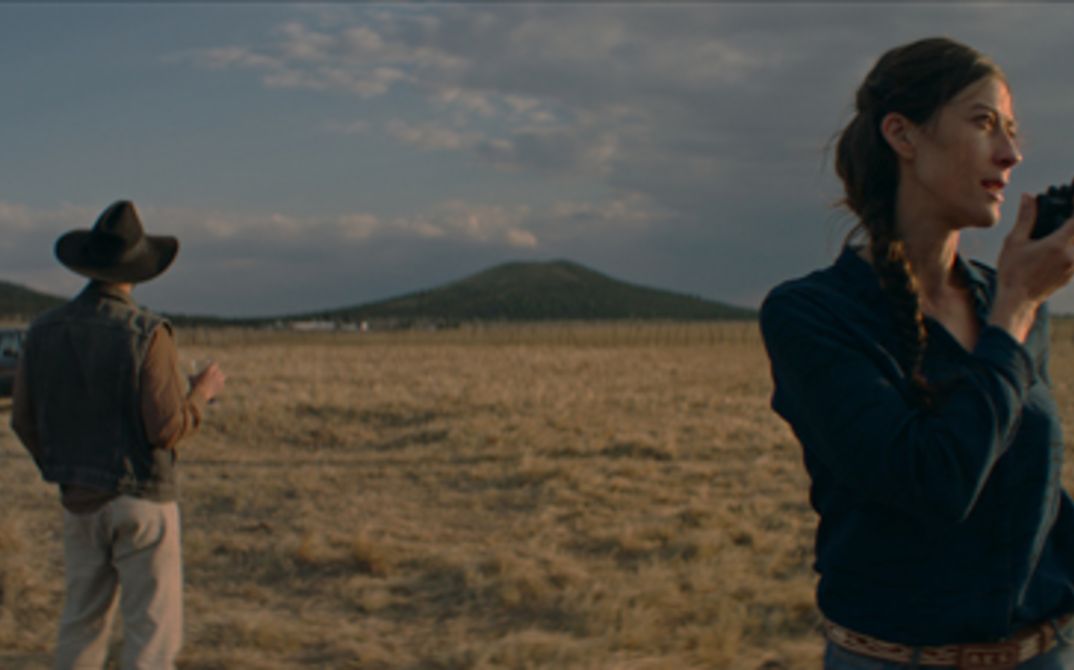NUESTRO TIEMPO (Our Time, Mexico/F/D/DK/S 2018, 21.6., in the presence of Carlos Reygadas) Juan and Esther and their two children live on a ranch in northern Mexico, where they raise fighter bulls. Juan is a respected writer and seems to be happy with his family life, largely because he and his wife have an open relationship. However, his expectations of himself falter when Esther shows sexual interest in a mutual friend at a party - Juan encourages her in order to control and manipulate her. Reygadas’ most recent film, in which his real wife and children play (as in POST TENEBRAS LUX), as does the director himself for the first time, seems almost like family therapy. In Reygadas’ longest film so far, he uses “all the artistic means of film to reflect all the feelings and realities of love” (Bert Rebhandl) and tries to come to terms with the gradual erosion of macho self-perception against a backdrop of breathtaking landscapes worthy of a western.
POST TENEBRAS LUX (Mexico/F/NL 2012, 22.6., in the presence of Carlos Reygadas & 29.6.) A rich industrialist lives in a luxury bungalow in the Mexican countryside that he built himself with his wife and two children. He has a tense relationship with his wife whom he no longer desires. His frustration makes him irascible and aggressive. Already the locals are already not particularly disposed to him because of the class differences and then an incident occurs that will have grave consequences. Shot in the now rare Academy ratio with a specially constructed wide angle lens, the film celebrates the unreal contemporaneousness of present, memories, fantasies and parallel worlds.
JAPÓN (Mexico/NL/D/E 2002, 23. & 27.6.) Reygadas’ feature debut begins with a car journey through the night and furious soundscapes: A nameless middle-aged man leaves Mexico City intending to find a remote place to kill himself. He finds shelter in the barn of an older Indigenous woman called Ascen, who lives on a hill over a bleak ravine. As soon as he puts the gun to his chest, his courage fails him. He observes the situation with Ascen’s nephew, who was recently released from jail and now wants to pull down his aunt’s barn. Ascen accepts this in a resigned way. Impressed, he is gripped by a new, bold desire that could return him back to life. Reygadas’ experimental and playful film celebrates the vision of a spiritually-charged cinema that moves like a flight of the soul through nature, spaces and dreams.
BATALLA EN EL CIELO (Battle in Heaven, Mexico/B/F/G/NL 2005, 25. & 28.6.) The corpulent and taciturn Marcos works as a general’s chauffeur. His wife sells alarm clocks in a subway station. To escape their stagnant existence and make some quick money, the two kidnap a neighbor’s child who dies. Tortured by his conscience, Marcos turns to the general’s daughter Ana for help. She secretly works as a prostitute in a brothel. Marcos confesses to her and seeks deliverance by having sex with her. Employing a bold narrative approach, Reygadas fragments the crime plot and uses long tracking shots, in which the camera is magnetically drawn to the walls and the sky, to open up a space for thought that the viewer is expected to fill. The long, explicit sex scenes between Marcos and Ana are central to the film and provoked heated debates when it premiered in Cannes in 2005.
STELLET LICHT (Silent Light, Mexico/F/NL/D 2007, 26. & 30.6.) The eponymous leitmotif of “silent light” is present from the very start of this allegorical story about a love triangle. The first scene shows day breaking slowly and the rising sun creating a color symphony of dark grey to gold-yellow-white. An elemental soundwave of natural sounds, including those of animals, penetrates the “silent light”, providing a sense of the underlying atmosphere of the unhappy relationship between Marianne, Johan and his wife Esther, who are all members Mexico’s deeply religious Mennonite community in Mexico. Shot in Plautdietsch (Mennonite Low German) with non-professional actors from the Mennonite community, the film is a tragedy suspended in time about guilt, atonement and redemption.
With support from the Mexican Cultural Institute in Berlin.



